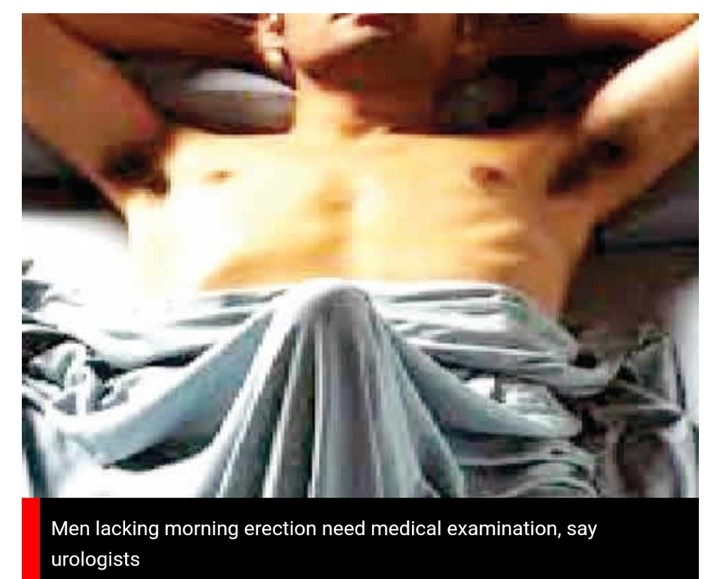Health/Beauty
Senate President, Bukola Saraki files fresh application to disqualify CCT Chariman, Danladi Umar from trial

The Senate President, Bukola Saraki, has filed another application to disqualify Danladi Umar, the chairman of the Code of Conduct Tribunal, from continuing to preside over his trial.
Ajibola Oluyede, a counsel to Mr. Saraki, who is being tried for alleged false and anticipatory assets declaration, filed the application shortly after the trial resumed on Wednesday morning.
Mr. Oluyede said the tribunal chairman still had a serious corruption case against him with the Economic and Financial Crimes Commission.
Mr. Oluyede premised his application on Section 36(1) of the Constitution which addresses the issue of biases and the rules of natural justice.
Mr. Oluyede had unsuccessfully moved a similar application last week, which resulted in a heated exchange between him and Mr. Umar.
After reading his motion, Mr. Oluyede called the attention of the court to a letter written to the Attorney-General by the EFCC chairman in February 2015, which was part of his exhibits against the Mr. Umar.
Mr. Oluyede read out paragraph four of the letter:
“There are indications that the tribunal chairman might have demanded and collected money from the complainant through his said personal assistant. However, efforts made to recover the telephone handset used by Justice Umar proved abortive, as he claimed that he had lost the telephone in 2012.
“This has made it impossible to subject it to independent scientific analysis with a view to corroborating the allegation. In the same vein the complainant could also not make available his telephone set for analysis on the grounds that he had lost it. Justice Umar also admitted that he met privately with the complainant in his chamber at the tribunal. This is a most unethical and highly suspicious conduct on his part.”
Justice Umar had initially declined to entertain the motion, but prosecution counsel, Rotimi Jacobs, urged him to admit the application so that it can be argued.
The letter cited is a 2014 petition sent to the EFCC, in which Rasheed Taiwo, a retired Customs official claimed to have been pressured by Mr. Umar for a ₦10 million bribe.
The EFCC has repeatedly said that it has no evidence to prosecute Mr. Umar over the matter.
Fashion/Lifestyle
Introducing “Atupaglowco” : Where Fragrance Meets Feeling; The Story of Our Beginning

Introducing “Atupaglowco”: Where Fragrance Meets Feeling; The Story of Our Beginning
Every great journey begins with a sense of anticipation. For us, it began with a simple belief that a space should do more than exist, it should speak comfort and glow.
In a world filled with noise, stress, and endless motion, we realized something powerful. Fragrance can transform not just rooms, but moods. A familiar scent can calm anxiety. A warm aroma can turn a house into a home. A gentle glow can bring peace after a long day. This realization gave birth to “Atupaglowco.”
Atupaglowco was not created to sell diffusers, room sprays, or candles. It was created to create experiences. To create moments. To create atmospheres where people can breathe, reflect, and feel whole again.
The name itself represents more than a brand. It represents warmth. It represents light. It represents presence. We remember the early days, the planning, the testing of scents, the moments of doubt, and the moments of excitement. Each candle poured was a step of faith. Each fragrance blended was a piece of our vision coming to life. We weren’t just building products; we were building something meaningful.
Our diffusers were designed to quietly fill spaces with elegance.
Our room sprays were crafted to instantly refresh and revive environments. Our candles were made to bring calm, beauty, and a soft glow into everyday life.
Atupaglowco was born from passion, patience, and purpose. This launch is not just the start of a business. It is the start of a movement to help people create spaces they love. Spaces that inspire rest. Spaces that inspire joy. Spaces that glow.
We believe fragrance is personal. We believe glow is emotional. We believe every space deserves both.
Today, we proudly introduce Atupaglowco to the world.
This is only the beginning.
Health/Beauty
Transforming Healthcare: RapidHeal Nigeria Offers Job Opportunities for 100 Certified Nurses Nationwide

Transforming Healthcare: RapidHeal Nigeria Offers Job Opportunities for 100 Certified Nurses Nationwide
Health/Beauty
Why Men Without Morning Erection Need Help

Why Men Without Morning Erection Need Help
Male reproductive health experts have urged men to take their sexual health seriously by seeking medical evaluation if they are not experiencing morning erections, a common and natural occurrence in healthy men.
The urologists stated that men experiencing persistent erectile issues or concerns should consult a healthcare professional for personalised evaluation and guidance.
Speaking exclusively with PUNCH Healthwise, the physicians advised men not having morning erections to carry out a comprehensive health assessment, including hormone testing, semen analysis, and lifestyle evaluations, to determine the underlying causes which may be erectile dysfunction or infertility.
According to Healthline, morning erections, a natural occurrence in most men, are often seen as a sign of healthy sexual function. They are typically caused by increased blood flow and hormonal fluctuations during the rapid eye movement (REM) phase of sleep.
The health website, however, noted that a notable number of men have reported experiencing a lack of morning erections, raising concerns about potential fertility or sexual health problems.
While some experts suggested that the absence of morning erection could be linked to underlying health issues, including infertility, others argued that it is not a reliable indicator of reproductive health.
A consultant urologist, Dr Emmanuel Eze stated that the body’s ability to have regular morning erections may be a reflection of broader reproductive health.
The physician stressed that the absence of morning erections could signal problems with hormone levels, such as low testosterone, or vascular health, which could affect overall erectile function and, in some cases, fertility.
Eze emphasised that morning erection is a natural occurrence during the REM sleep stage, typically happening 3-5 times per night.
The physician explained that the absence of morning erections could suggest issues such as erectile dysfunction, low testosterone levels, or underlying cardiovascular conditions.
According to him, it is normal for men to experience morning erections three to five times each night. These erections are typically spontaneous and occur without sexual arousal. The process is part of the body’s natural hormonal fluctuations and is linked to the functioning of the nervous system and blood flow.
Eze explained that these spontaneous erections during sleep are crucial in maintaining healthy erectile function and, by extension, overall reproductive health.
He emphasised that they are a natural and healthy sign of the body’s ability to achieve and maintain erections, which are important for male fertility.
“While occasional changes in morning erections are normal as men age, a persistent lack of them could point to potential health problems such as erectile dysfunction, low testosterone, or even more serious conditions like heart disease. Men mustn’t ignore these early warning signs.
“A comprehensive evaluation can help pinpoint the cause and allow for timely treatment options, whether it’s lifestyle changes, therapy, or medications,” Eze added.
Speaking further, the urologist elaborated that the absence of morning erections could be an indication of various medical conditions that might impact sexual and reproductive health.
“Erectile dysfunction is often the result of an imbalance in the body’s ability to deliver blood to the penis. If morning erections are absent, it could be a reflection of poor blood flow or nerve function, which are key contributors to erectile dysfunction,” Eze explained.
In addition to erectile dysfunction, the male reproductive expert noted that the absence of morning erections may also be linked to low testosterone levels.
He added, “Testosterone is the primary male sex hormone, essential for sexual function, mood regulation, and the production of sperm. A decline in testosterone can lead to a reduced frequency of morning erections. It can also cause a range of other symptoms, such as fatigue, decreased libido, and loss of muscle mass. While a decrease in testosterone levels is a natural part of aging, significant drops in testosterone could signal more serious health concerns.”
Eze also underscored the connection between erectile function and male fertility, stressing that problems with achieving or maintaining an erection could affect a man’s ability to conceive.
He explained that erectile function plays a critical role in sperm delivery, and when erectile issues arise, they could make it more difficult to engage in regular sexual activity, which could impact fertility.
“There is a direct connection between erectile function and male fertility. If a man is consistently not experiencing morning erections, it could indicate that there’s an issue with his reproductive system, whether it’s a problem with his hormones, blood vessels, or nerve function,” he said.
He pointed out that while the absence of morning erections does not automatically equate to infertility, it could signal underlying problems that should be addressed.
Eze advised that men who notice a persistent absence of morning erections should consult a urologist for an evaluation of their reproductive and sexual health.
He explained that poor blood circulation, which is often associated with heart disease or high blood pressure, can directly affect the ability to achieve erections.
“The vessels that supply blood to the penis are small and delicate, and when these vessels are compromised due to poor cardiovascular health, it can result in a decreased ability to have spontaneous erections.
“Erectile dysfunction is frequently one of the early signs of cardiovascular problems. If a man is not having morning erections, it could be a sign that his vascular health is not in optimal condition. It’s essential to recognise this as a potential red flag and seek medical advice before the issue becomes more severe,” the urologist warned.
However, a Senior Registrar in Urology at the Lagos State University Teaching Hospital, Dr. Akpo Edewor, argued that the lack of a morning erection is not necessarily an indication of serious health concerns, as many people assume.
Edewor emphasised that the absence of morning erections is not an automatic sign of erectile dysfunction or serious sexual health problems.
He explained, “Morning erections should not be viewed as the definitive measure of sexual health. It is important to understand that men can still maintain erectile function despite not having morning erections. This does not immediately indicate erectile dysfunction.”
The urologist stressed that various factors, such as sleep patterns, stress, or even the time a man wakes up, can influence whether or not he experiences a morning erection.
He further clarified that a key component in assessing erectile health is the ability to achieve an erection in response to sexual stimuli.
“If a man can still attain an erection when engaging with a partner, even without morning erections, this indicates that his erectile function is likely intact,” he stated.
Erectile dysfunction, according to Edewor, is more complex than just the absence of morning erections. It is a condition where a man consistently struggles to achieve or maintain an erection sufficient for sexual intercourse.
He said various health conditions, including heart disease, diabetes, hypertension, and even the medications used to treat these conditions, could contribute to erectile dysfunction.
-

 celebrity radar - gossips6 months ago
celebrity radar - gossips6 months agoWhy Babangida’s Hilltop Home Became Nigeria’s Political “Mecca”
-

 society6 months ago
society6 months agoPower is a Loan, Not a Possession: The Sacred Duty of Planting People
-

 society5 months ago
society5 months agoReligion: Africa’s Oldest Weapon of Enslavement and the Forgotten Truth
-

 news6 months ago
news6 months agoTHE APPOINTMENT OF WASIU AYINDE BY THE FEDERAL GOVERNMENT AS AN AMBASSADOR SOUNDS EMBARRASSING










You must be logged in to post a comment Login